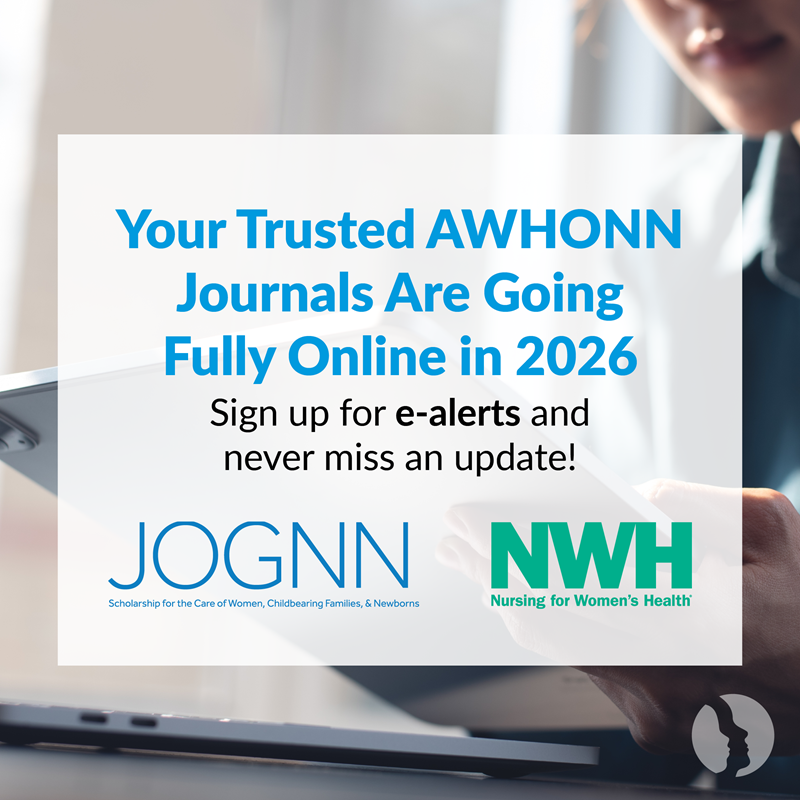Neonatal and Newborn Care Resources
- Certification and Core Review for Neonatal Intensive Care Nursing- 5th Ed.
Developed by AWHONN, AACN and NANN, this resource prepares you for your neonatal critical care nursing certification examination through hundreds of high-quality study questions and realistic test simulation. - Core Curriculum for Maternal and Newborn Nursing- 5th Ed.
The Core Curriculum for Maternal-Newborn Nursing, 5th Edition provides the most up-to-date, accurate information available on today’s maternal-newborn nursing practice. Its concise outline format covers concepts of reproduction, fetal development, normal pregnancy, intrapartum and postpartum periods, the normal newborn, complications in the mother and newborn, and ethical issues. -
The 6th edition includes evidence-based best practices in caring for preterm infants, medications and antepartum-intrapartum complications.
- Perinatal Nursing – 5th Edition
This updated, evidence-based edition is a valuable resource for perinatal nurses practicing in all levels of maternal care, mother-baby units, newborn care, and for those nurses studying for certification examinations.
- Neonatal Nursing: Clinical Competencies and Education Guide, 8th Edition
Updated in 2024, AWHONN’s 8th Edition updated guide provides a framework for educational content and skills verification for nurses who provide evidence-based care for newborns and infants. - Assessment and Care of the Late Preterm Infant- 2nd Ed.
The purpose of this Guideline is to enhance knowledge of the risks of late preterm birth and the unique needs of the late preterm neonate in order to facilitate timely assessment and intervention. - Neonatal Skin Care Evidence-Based Guideline- 4th Ed.
Newborn skin care practices have the potential to impact skin for many years. This revised guideline is targeted to obstetric, postpartum, and neonatal nurses, and other healthcare providers caring for newborns in various settings. New recommendations based on current research focus on appropriate skin care practices for term and preterm newborns. Expanded topics include bathing, atopic dermatitis and emollients, management of diaper dermatitis, intravenous extravasation, parent education, and product selection considerations. - The Use of Human Milk During Parent Newborn Separation, EBG
This Guideline provides evidence-based clinical practice recommendations to support lactation for those parents who choose to provide human milk to their newborns and who are separated during the initial birth hospitalization. - Perinatal Mood and Anxiety Disorders: Research and Implications for Nursing Care
The publication of this practice monograph was supported by an educational grant from Pampers.The monograph is provided as an open access document and may be downloaded for free. - Download Free Parent Handouts and Resources: These resources were developed to help support parents in recognizing the needs of their late preterm baby.developed to help support parents in recognizing the needs of their late preterm baby.
- Crib Card
- Warning Signs for Your Late Preterm Baby Handout
- Your Late Preterm Baby and What You Need to Know Handout
- Journal CNE: Validation of the Newborn Warning Signs Handout
Objective: Discuss the need for standardized, evidence-based newborn warning sign education and summarize the gaps in current discharge teaching identified in the literature. - Review of Factors Influencing NonMedically Indicated Formula Journal CNE
Objective: To examine maternal and newborn factors that influence non–medically indicated (NMI) formula supplementation of newborns before discharge from the hospital. - Sleep Promotion for Preterm Infants in the NICU Journal CNE Activity
This journal CNE activity discusses the importance of sleep in preterm infants, describe tools commonly used to assess infant sleep and identify different sleep–wake states, and identify interventions that promote sleep in preterm infants in the NICU. - Educating Parents on Vitamin K Prophylaxis for Newborns
Nurses often administer the newborn vitamin K injection, and they play a key role in educating parents and helping them make informed decisions about vitamin K prophylaxis for their newborns.
- Breastfeeding and the Use of Human Milk
AWHONN maintains that breastfeeding and the provision of expressed human milk are critical components to ensure the health and well-being of newborns, young children, and childbearing women. If a mother’s own milk is not available, pasteurized donor human milk is the preferred substitute and should be offered when available and medically appropriate before supplementation with infant formula.
- Neonatal Orientation and Education Program, Fourth Edition (NOEP)
NOEP is a comprehensive, educational program that is highly effective in providing evidence-based, clinical education to neonatal nurses. NOEP helps to mitigate neonatal risk, increase staff efficiency, and promote optimal neonatal outcomes while saving your healthcare system time and money. With NOEP, your facility can establish consistent provision of high-quality care for high-risk and vulnerable newborns.
- Telehealth in Neonatal Care: Expanding Access & Expertise Beyond the NICU Walls
This session explores how telehealth is transforming neonatal resuscitation and ongoing care, especially in hospitals and regions with limited neonatal resources. Participants learns what effective telehealth programs look like, how they function to extend access to neonatal expertise, and the ways they improve outcomes by keeping mothers and newborns together. The webinar highlights practical models, evidence of impact, and strategies for ensuring safe, equitable neonatal care through virtual support.























